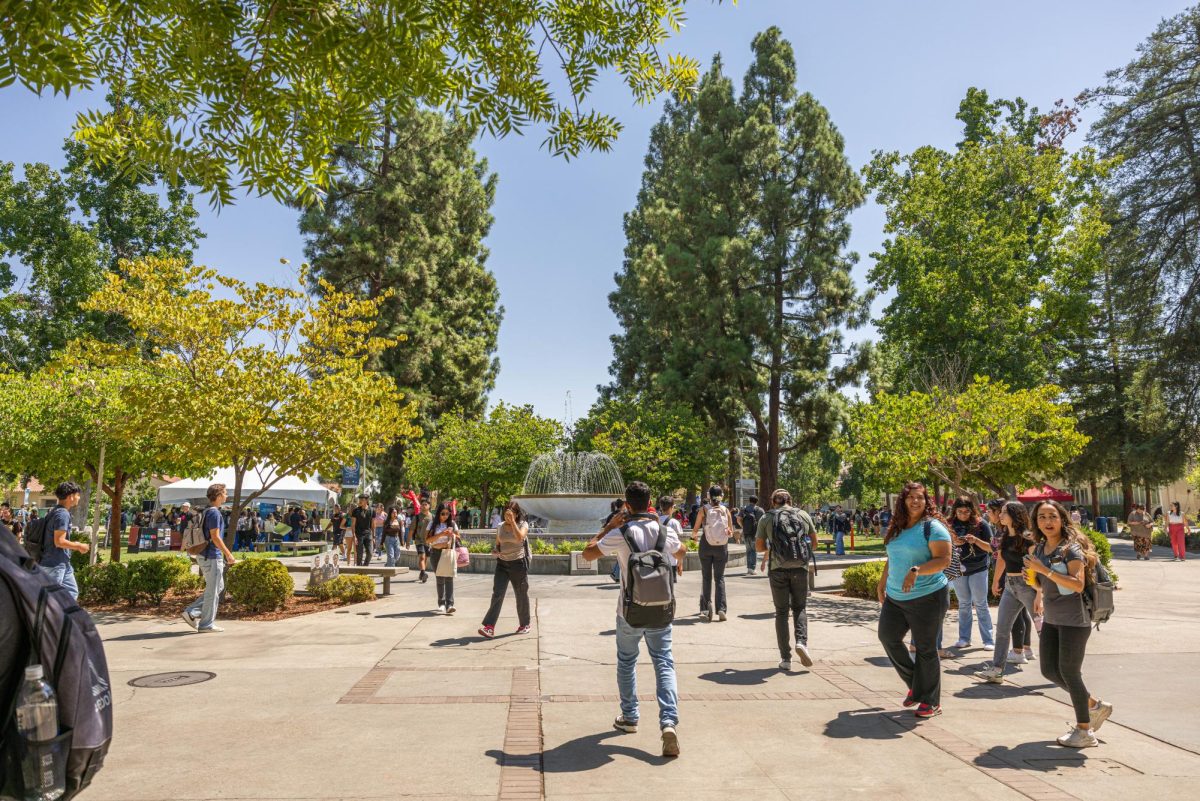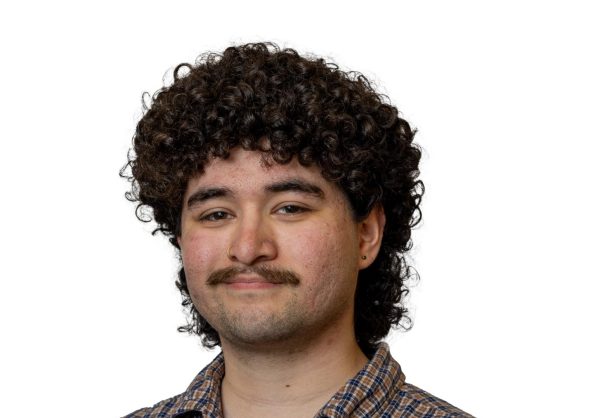As the conversation around environmentalism continues to solidify its place in the political mainstream, it’s become increasingly clear that it’s up to the younger generations to advocate and practice the changes they want to see implemented on university campuses.
Fresno State Climate Action is a group of alumni and volunteers that engage in various projects on campus such as composting, flower planting and upcycling drives. The organization is new on campus this year and its most recent project has been redoing the landscaping around the library by planting more sustainable, native flora.

The local plants take up less water than the grass all over campus and in the long term, will help save money on infrastructure.
“Because of how much groundwater is used on campus, there’s a hole under Fresno State,” said Alex Ramirez, volunteer for Climate Action. “And as we use more water, that hole gets bigger, and that’s really bad for infrastructure and how we spend our money.”
Replanting around campus is also better for students’ health because the ecosystems created by the new plants get rid of the need for chemical sprays or insecticides. The microbes in the compost help plants naturally grow strong and create natural methods of bug repelling.
“We also use companion planting, and it takes care of certain issues. Some insects don’t like the smell of specific plants so they’re going to naturally stay away, while bees, monarch butterflies and other things like that will stay,” Ramirez said.
Fresno State Climate Action has also put Fresno State on the map by entering the university in the Campus Race to Zero Waste, an international competition to motivate schools to practice sustainability. The organization takes pride in ranking higher than competing campuses, such as San Francisco State, but wants to keep working to further the university’s zero waste ranking.
The larger CSU system has noted the movements toward sustainability, and Fresno State itself is no exception.
The university uses the Sustainability Tracking, Assessment and Rating System (STARS) to keep track of how sustainable the campus is. The STARS system is the most widely used method by schools, with over 900 participants.
STARS using a ranking system of bronze, silver, gold and platinum tiers to gauge how effectively a campus utilizes sustainable practices. Rankings are determined by how many points a university scores in various categories.
Upon its first submission, Fresno State received a bronze rating that expired in 2020, but through campus-wide efforts, earned a silver ranking at the end of 2023 that is valid until Feb. 21, 2027.
The most apparent move towards sustainability that students have noticed in recent years was the introduction of solar panels. This undertaking was part of the Central Utility Plant Replacement Project, which also aimed to make the campus’ heating and cooling more reliable and energy efficient.
The semesters spent renovating the parking lot undoubtedly caused endless inconveniences for the students, but the project claims to be able to reduce Fresno State’s energy footprint by 30% and carbon emissions by seven metric tons a year.
Even during daily operations, students are engaging in sustainable practices without even being conscious of them. Compostable paper straws and utensils are reducing the number of plastic straws in landfills or littered in the ocean. In addition, water bottle hydration stations that are present in most buildings are helping to reduce one-time plastic bottle usage.
Thanks to the campus resource map, students can find the nearest bottle-filling station or trash and recycling area.
The map also highlights the various arboretums on campus. An arboretum is a garden dedicated to specific species of trees or plants, and Fresno State has eight of them, including the Peace Garden, Memorial Plaza, and more.
The campus arboretums don’t just represent the importance of nature, but history as well. The Peace Garden includes the Native Plant Garden, which houses six plants that are used in Native American Basket Making. Memorial Plaza, known for its vibrant pink tree blossoms and rose garden, gets its name from being dedicated to those who lost their lives in both world wars.
Even students with allergies can appreciate the beauty of campus gardens with the Allergy-Free Demonstration Garden behind the Smittcamp Alumni House. The garden is composed of over 50 non-allergenic plants and trees, providing a nice shade for students to enjoy nature on campus.
Hillary Rodriguez, Fresno State alumna who runs the social media for Fresno State Climate Action, is pleased with all that has been so far and wants to keep the momentum going. Though she is grateful for the support the organization has received thus far, she’s seen how difficult it can be for such a new group to get through the bureaucracy on campus.
As they continue to do more projects and gain more recognition, they’ve received more support over time. Rodriguez said the organization hopes to be taken as seriously as other programs on campus that seem to have priority.
“I wish that the higher levels would take more interest in this because it’s not just for the students or the numbers, but also for the whole community,” Rodriguez said.





